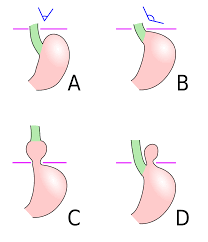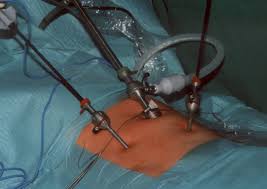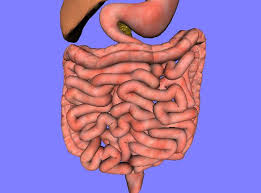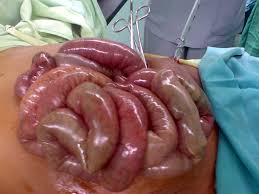CALL TODAY 646-846-1136 | EMAIL
Surgical Experts Dedicated to Improving Lives
At Lenox Hill Surgeons, our dedicated team of nyc surgeons and medical professionals provide compassionate care with the highest ethical & professional standards. In our state of the art facility, we offer surgical services using only the most cutting edge and current procedures and treatments.We specialize in general surgery, including extensive experience in performing hernia repair surgery. Our expertise is in minimally invasive surgery and robotic surgery. Minimally invasive and robotic surgery often allow patients to experience easier recovery than traditional open surgery. They also allow for more precise and less traumatic surgery. When robotic and minimally invasive surgery is not an option, we are also skilled and experienced in traditional open surgical procedures.
All of our doctors are experienced and skilled surgeons having undergone extensive training in school, residency and fellowships. They all practice medicine with ethical behavior, compassion and superb bedside manner. In the operating room they all exhibit precise mechanical abilities, analytical thinking and the ability to visualize tissue in three dimensions. These innate and learned skills allow our surgeons to be some of the most dexterous and skilled professionals in all of New York City and the Country.
Call us: 646-846-1136
About The Surgeons
PATIENT TESTIMONIALS
Recent Awards
We are honored and deeply appreciative to have consistently received prestigious awards and recognition year after year, establishing us as one of New York’s foremost hospitals for a wide range of general surgeries, safety measures, specialized procedures, and overall excellence in healthcare. At Lenox Hill Surgeons, our unwavering commitment lies in delivering exceptional care and unwavering support to our patients, guaranteeing their safety and successful recovery throughout their entire surgical experience.
Hospital Quality Awards
 America’s 50 Best Hospitals Award™ (2023, 2022)
America’s 50 Best Hospitals Award™ (2023, 2022)
Top 1% in the nation for providing the highest clinical quality year over year.

America’s 100 Best Hospitals Award™ (2021)
Top 2% in the nation for consistently delivering clinical quality year over year.

America’s 250 Best Hospitals Award™ (2023, 2022, 2021)
Top 5% in the nation for consistently delivering clinical quality.

Patient Safety Excellence Award™ (2023, 2022)
Top in the nation for providing excellence in patient safety by preventing infections, medical errors, and other preventable complications.
Specialty Clinical Quality Awards

America’s 100 Best Hospitals for Cardiac Care Award™ (2023, 2022, 2021, 2020, 2019)
Superior clinical outcomes in heart bypass surgery, coronary interventional procedures, heart attack treatment, heart failure treatment, and heart valve surgery.

America’s 100 Best Hospitals for Coronary Intervention Award™ (2023, 2022, 2021, 2020, 2019)
Superior clinical outcomes in coronary intervention procedures (angioplasty with stent).

America’s 100 Best Hospitals for Prostate Surgery Award™ (2023, 2022, 2021)
Superior clinical outcomes in prostate removal surgery and transurethral resection of the prostate.
Click to see all of our Healthgrades best doctors awards


Visit our main website at www.LenoxHillSurgeons.com
Blog Posts are Below:
Monthly Archives: April 2019
Causes & Symptoms of Hernias
Hernias are widely common, with almost 2% of the population suffering from hernias. This may seem like a small number, but in the United States of America alone that adds up to around 600,000 people dealing with hernias. But what exactly is a hernia? What causes so many people to have hernias? And how does having a hernia affect you?
What is a Hernia?
A hernia is a protrusion of soft tissue, usually an organ or fat tissue, through the muscular lining that typically would hold it in place. One of the most common types of hernias is an inguinal hernia. In this case, the abdominal muscles that hold the intestines in place can grow weak and develop gaps that allow a small section of the intestine to jut out. This segment of the intestine can eventually become swollen, painful, and cause discomfort during regular tasks.
Many people complain of pain associated with bending, lifting, and coughing, as all of these activities create pressure on the herniated section of the abdominal cavity. Although a hernia itself may not be hazardous initially, it can lead to many other medical complications.
What Causes Hernias?

When the muscular lining that keeps organs in place grows weak, the integrity of the muscular “wall” can fail, creating weak spots. These spots can then become susceptible to internal structures pushing out and herniating. This herniation typically happens initially during a period of intense pressure. For example, exerting oneself while lifting an object can cause pressure in the abdominal cavity and result in a hernia.
Prolonged, chronic coughing can weaken the structural muscles in place, with repeated strain reducing the integrity of the muscle. Additionally, a surgical incision, if not provided enough time to heal properly, can facilitate a weak spot in the muscular lining and allow for herniation.
Congenital problems can also result in herniation in cases where the abdominal wall does not fully develop in utero. There are a number of complications that can increase the risk of herniation. This includes pregnancy, heavy lifting, rapid weight gain, chronic coughing, constipation, and recent surgical activity in the surrounding area.
What are the Symptoms of Hernias?
The most commonly reported symptom of a hernia is pain. The exact nature of the pain experienced varies from person to person, but many people note greater pain when additional pressure is applied to the abdominal region. This includes lifting, bending, coughing, or other physical exertion with straining.
Hernias are not always found as soon as they occur. Usually, it takes repeated pressure and exertion for the hernia to be noted. After a number of years, a hernia is usually identified correctly by self-assessment. A hernia does not correct itself, but would instead require surgical treatment to repair the damage.
Complications of Hernias

Although a hernia on its own does not require emergency treatment, there are a number of situations in which urgent action may be required. Herniated areas may not receive the blood supply they require and are at a higher risk of infection. If a hernia has become swollen, warmer than usual, or extremely painful, this can be a sign of infection. In addition, depending on the location, a hernia can cause obstruction to the bowel and digestive tract. This can quickly become an urgent situation requiring emergency medical correction.
Do you think you might have a hernia? Call the best surgeons in NYC to discuss your case and your treatment options.
———
References:
https://www.webmd.com/digestive-disorders/types-of-hernias#1
https://www.webmd.com/digestive-disorders/understanding-hernia-basics
Small Intestine Surgery – What to Expect
 The small intestine is actually a very long and essential organ for daily function. Measuring around 20 ft in full-grown adults, the small intestine responsible for the majority of digestion. However, there are times that part of the small intestine must be removed. In these cases, a small intestine resection, or surgery, can be completed. But how much of a small intestine can really be removed? How essential is the small intestine? What does small intestine surgery entail? And what is recovery like for small intestine surgery?
The small intestine is actually a very long and essential organ for daily function. Measuring around 20 ft in full-grown adults, the small intestine responsible for the majority of digestion. However, there are times that part of the small intestine must be removed. In these cases, a small intestine resection, or surgery, can be completed. But how much of a small intestine can really be removed? How essential is the small intestine? What does small intestine surgery entail? And what is recovery like for small intestine surgery?
What is the Small Intestine?

The small intestine is an essential organ in the process of digestion. When food enters the body, the digestive process begins as you chew your food. This breaks the food down from large chunks into smaller, more manageable chunks. Saliva is also involved, chemically breaking down the different parts of the food. Next, the food travels down the throat, through the esophagus, and to the stomach.
In the stomach, more aggressive enzymes continue to break down the food. Muscular contractions are also responsible for preparing the food for further digestion. The small intestine then receives the food from the stomach. Here, even more enzymes-those created by the pancreas and the liver- break down the food even more. small intestines where the majority of nutrient absorption is completed in the digestive tract. Finally, The food travels to the large intestine, or the colon. Once in the colon, leftover waste that could not be used in the digestive process is excreted. As we can see, the small intestine is essential for the proper breakdown of food and digestion.
Why Would you Need Small Intestine Surgery?
There are a few different reasons that small intestine surgery might be deemed necessary.one of the most common causes for small intestine surgery is a blockage within the organ. As food travels through the small intestines, it may block the passage of other foods through the intestines. This can cause major problems, including infection, disease, constipation, and even potentially death. In cases where there is a blockage within the intestines, surgery is one of the most effective techniques to remediate that.
Because the small intestine is so long, it is possible to remove only a small section of it. During the process of digestion within the small intestine, vitamins and nutrients are absorbed through the lining of the intestinal wall. Therefore, a top priority for surgeons is that of leaving as much intestinal wall intact as possible. In other cases, a section of the small intestine may become diseased or cancerous. Small intestines surgery may be completed in order to protect the rest of the small intestine. If this disease were to spread, the entire small intestine could be compromised.
What to Expect from Small Intestine Surgery Recovery
The small intestine is essential for our daily life. any changes that we make to the small intestine will have an immediate impact on our daily routine. Obviously, your diet will have to change. Just prior to and shortly after the surgery, you will not be able to eat or drink anything. A nasogastric tube movie placed to give you the nutrients you need. This is typically removed within the first week of recovery. Once you are at home, activity restrictions will help protect the incision site and small intestine. Any activity that causes stress to the abdominal region, such as heavy lifting, is to be avoided.
Do you need small intestine surgery? Contact the best surgeons in NYC and schedule an appointment today.
———
References:
https://medlineplus.gov/ency/article/002943.htm
https://www.cancer.org/cancer/small-intestine-cancer/treating/surgery.html
https://www.oncolink.org/cancers/gastrointestinal/small-bowel-cancers/small-bowel-resection


















